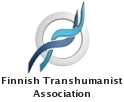Speakers
Keynote speakers
Conference chair
Other speakers
- Prof. Timo Airaksinen, Ph.D.
- Anatoli Bogdan, Ph.D.
- Nick Bostrom, Ph.D.
- Riccardo Campa, Ph.D.
- Jose Cordeiro
- Anastasiya Gacheva, Ph.D.
- Ben Goertzel, Ph.D.
- James Hughes, Ph.D.
- Prof. Hannu Kari, D.Sc.
- Prof. Bruce Lloyd, Ph.D.
- Sky Marsen, Ph.D.
- Danila Medvedev, Ph.D.
- Giulio Prisco (FutureTag Ltd)
- Anders Sandberg, Ph.D.
- Harri Valpola, D.Sc.
- Philippe Van Nedervelde (E-spaces nv)
- Natasha Vita-More
- David Wood (Symbian Ltd)
Keynote speakers
William Sims Bainbridge, Ph.D.
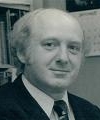 William Sims Bainbridge, Ph.D., is the author of 12 books, 4 textbook-software packages, and 200 shorter publications in information science, social science of technology, and the sociology of religion. He is the editor of the Berkshire Encyclopedia of Human-Computer Interaction (2004) and author of God from the Machine, a study using artificial intelligence techniques to understand religious belief (2006). With Mihail Roco, he co-edited the pioneering reports Societal Implications of Nanoscience and Nanotechnology (2001) and Converging Technologies for Improving Human Performance (2003), and four subsequent similar works. He has just completed The Secular Abyss, a study of tension between science, religion, and human well being. At the US National Science Foundation since 1992, he represented the social and behavioral sciences on five advanced technology initiatives: High Performance Computing and Communications, Knowledge and Distributed Intelligence, Digital Libraries, Information Technology Research, and Nanotechnology, before joining the staff of the Directorate for Computer and Information Science and Engineering. William Sims Bainbridge, Ph.D., is the author of 12 books, 4 textbook-software packages, and 200 shorter publications in information science, social science of technology, and the sociology of religion. He is the editor of the Berkshire Encyclopedia of Human-Computer Interaction (2004) and author of God from the Machine, a study using artificial intelligence techniques to understand religious belief (2006). With Mihail Roco, he co-edited the pioneering reports Societal Implications of Nanoscience and Nanotechnology (2001) and Converging Technologies for Improving Human Performance (2003), and four subsequent similar works. He has just completed The Secular Abyss, a study of tension between science, religion, and human well being. At the US National Science Foundation since 1992, he represented the social and behavioral sciences on five advanced technology initiatives: High Performance Computing and Communications, Knowledge and Distributed Intelligence, Digital Libraries, Information Technology Research, and Nanotechnology, before joining the staff of the Directorate for Computer and Information Science and Engineering. |
Aubrey de Grey, Ph.D.
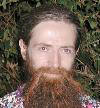 Aubrey de Grey, Ph.D., is a biogerontologist at the University of Cambridge, UK. He designs interventions to reverse the cellular and molecular changes that accumulate with age and reduce remaining life expectancy. He has coined the term “strategies for engineered negligible senescence” (SENS) to describe these interventions, which he argues are the only feasible way to extend human lifespan by more than a decade. He has published widely on such technology. He is also the co-founder and chief scientist of the Methuselah Mouse Prize, a contest designed to accelerate research into effective life extension interventions by awarding prizes to researchers who extend the lifespan of mice to unprecedented lengths. Aubrey de Grey, Ph.D., is a biogerontologist at the University of Cambridge, UK. He designs interventions to reverse the cellular and molecular changes that accumulate with age and reduce remaining life expectancy. He has coined the term “strategies for engineered negligible senescence” (SENS) to describe these interventions, which he argues are the only feasible way to extend human lifespan by more than a decade. He has published widely on such technology. He is also the co-founder and chief scientist of the Methuselah Mouse Prize, a contest designed to accelerate research into effective life extension interventions by awarding prizes to researchers who extend the lifespan of mice to unprecedented lengths. |
Conference chair
Ari Heljakka
 Ari Heljakka (MSc, BA) advocates complete re-evaluation of the traditional Western world views. He wages war against all forms of stagnation in human thought patterns, especially cowardly attitudes towards present and future technology and science. His scientific work in GenMind Ltd (Finland) currently consists of AI research aimed at developing robot cognition software based on Novamente AI engine jointly with Novamente LLC (USA). Ari Heljakka (MSc, BA) advocates complete re-evaluation of the traditional Western world views. He wages war against all forms of stagnation in human thought patterns, especially cowardly attitudes towards present and future technology and science. His scientific work in GenMind Ltd (Finland) currently consists of AI research aimed at developing robot cognition software based on Novamente AI engine jointly with Novamente LLC (USA). |
Other speakers
Prof. Timo Airaksinen, Ph.D.
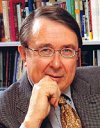 Timo Airaksinen, Ph.D., is a professor of Philosophy at the University of Helsinki, Finland. He has written extensively on ethics, epistemology, and the history of philosophy. Timo Airaksinen, Ph.D., is a professor of Philosophy at the University of Helsinki, Finland. He has written extensively on ethics, epistemology, and the history of philosophy. |
Anatoli Bogdan, Ph.D.
Nick Bostrom, Ph.D.
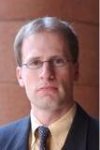 Nick Bostrom, Ph.D., is a philosopher at Oxford University, and the Director of the Oxford Future of Humanity Institute. He co-founded the World Transhumanist Association in 1998 and is a frequent spokesperson and commentator in the media. He has been a consultant for the Central Intelligence Agency (Washington, DC), and for the European Commission and the European Group on Ethics (Brussels). Dr. Bostrom’s research interests include the philosophy of science, probability theory, and the ethical and strategic implications of anticipated technologies. He has a background in cosmology, computational neuroscience, mathematical logic, philosophy, and artificial intelligence, and is the author of the book Anthropic Bias: Observation Selection Effects in Science and Philosophy (Routledge, New York, 2002). Nick Bostrom, Ph.D., is a philosopher at Oxford University, and the Director of the Oxford Future of Humanity Institute. He co-founded the World Transhumanist Association in 1998 and is a frequent spokesperson and commentator in the media. He has been a consultant for the Central Intelligence Agency (Washington, DC), and for the European Commission and the European Group on Ethics (Brussels). Dr. Bostrom’s research interests include the philosophy of science, probability theory, and the ethical and strategic implications of anticipated technologies. He has a background in cosmology, computational neuroscience, mathematical logic, philosophy, and artificial intelligence, and is the author of the book Anthropic Bias: Observation Selection Effects in Science and Philosophy (Routledge, New York, 2002). |
Riccardo Campa, Ph.D.
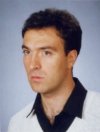 Riccardo Campa, Ph.D., is assistant professor of sociology at the University of Cracow, where he teaches "sociology of science and technology" and "sociology and psychology of terrorism". He is the author of Epistemological Dimensions of Robert Merton’s Sociology and Il filosofo è nudo. He received a Ph.D. in Sociology at the Nicholas Copernicus University of Torun (Poland), and two Masters degrees, in Political Sciences and Philosophy, at the University of Bologna (Italy). Before starting his academic career, Campa served as Lieutenant of the police corp "Guardia di Finanza", investigating especially organized crime. Afterwards, he worked as a journalist for newspaper "La Voce di Mantova" and newsmagazine "Il Mondo". In the academic year 2004-2005 he won a fellowship offered by NATO to research about ethical aspects of scientific and technological development. Presently, he writes regularly for the socialist journal "MondOperaio". He is the founder and the president of the Italian Transhumanist Association. He is also a musician who has recorded more than fifteen albums as a solo artist and with his bands. Riccardo Campa, Ph.D., is assistant professor of sociology at the University of Cracow, where he teaches "sociology of science and technology" and "sociology and psychology of terrorism". He is the author of Epistemological Dimensions of Robert Merton’s Sociology and Il filosofo è nudo. He received a Ph.D. in Sociology at the Nicholas Copernicus University of Torun (Poland), and two Masters degrees, in Political Sciences and Philosophy, at the University of Bologna (Italy). Before starting his academic career, Campa served as Lieutenant of the police corp "Guardia di Finanza", investigating especially organized crime. Afterwards, he worked as a journalist for newspaper "La Voce di Mantova" and newsmagazine "Il Mondo". In the academic year 2004-2005 he won a fellowship offered by NATO to research about ethical aspects of scientific and technological development. Presently, he writes regularly for the socialist journal "MondOperaio". He is the founder and the president of the Italian Transhumanist Association. He is also a musician who has recorded more than fifteen albums as a solo artist and with his bands. |
Jose Cordeiro
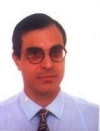 Jose Cordeiro is an independent consultant, writer, researcher, professor and "traveler". He teaches as a Guest Professor at the Institute for Higher Studies in Administration (IESA) and at the Central University of Venezuela (UCV), where he created the first formal courses of Futures Studies ("prospectiva") and also of Austrian Economics in Venezuela. He is founder and president of the World Future Society (Venezuela Chapter), cofounder of the Venezuelan Transhumanist Association, chair of the Venezuelan Node of the Millennium Project of the American Council of the United Nations University (UNU), director of the Extropy Institute, advisor to the Center for Responsible Nanotechnology, member of the Academic Committee of the Center for the Dissemination of Economic Knowledge (CEDICE), former director of the Club of Rome (Venezuela Chapter, where he has being active promoting classical liberal ideas) and of the Venezuelan Association of Exporters (AVEX), and consultant to various companies and organizations, both Venezuelan and international. He has been included in the Marquis Edition of Who's Who in the World. Jose Cordeiro is an independent consultant, writer, researcher, professor and "traveler". He teaches as a Guest Professor at the Institute for Higher Studies in Administration (IESA) and at the Central University of Venezuela (UCV), where he created the first formal courses of Futures Studies ("prospectiva") and also of Austrian Economics in Venezuela. He is founder and president of the World Future Society (Venezuela Chapter), cofounder of the Venezuelan Transhumanist Association, chair of the Venezuelan Node of the Millennium Project of the American Council of the United Nations University (UNU), director of the Extropy Institute, advisor to the Center for Responsible Nanotechnology, member of the Academic Committee of the Center for the Dissemination of Economic Knowledge (CEDICE), former director of the Club of Rome (Venezuela Chapter, where he has being active promoting classical liberal ideas) and of the Venezuelan Association of Exporters (AVEX), and consultant to various companies and organizations, both Venezuelan and international. He has been included in the Marquis Edition of Who's Who in the World. |
Anastasiya Gacheva, Ph.D.
| Anastasiya Gacheva, Ph.D., is a philologist and head of the memorial library-museum of Nikolaj Fedorov in Moscow. She has more than 100 publications. |
Ben Goertzel, Ph.D.
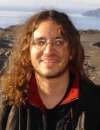 Ben Goertzel, Ph.D., has published five scholarly books dealing with topics in the AI, systems theory and cognitive sciences, including Chaotic Logic (Plenum Press, 1994), and Creating Internet Intelligence (Plenum Press, 2001), a biography of Linus Pauling, and one previous edited volume (in the area of dynamical psychology), as well as numerous research papers. Dr. Ben Goertzel has been involved in AI research and application development since the late 1980's. He holds a PhD in mathematics from Temple University, and over the period 1989-1997 he held several university faculty positions in mathematics, computer science, and psychology, in the US, New Zealand and Australia. Currently, as founder and CEO of the software firms Biomind LLC and Novamente LLC, he is leading a team of AI researchers in the development and commercialization of Artificial General Intelligence technology. Ben Goertzel, Ph.D., has published five scholarly books dealing with topics in the AI, systems theory and cognitive sciences, including Chaotic Logic (Plenum Press, 1994), and Creating Internet Intelligence (Plenum Press, 2001), a biography of Linus Pauling, and one previous edited volume (in the area of dynamical psychology), as well as numerous research papers. Dr. Ben Goertzel has been involved in AI research and application development since the late 1980's. He holds a PhD in mathematics from Temple University, and over the period 1989-1997 he held several university faculty positions in mathematics, computer science, and psychology, in the US, New Zealand and Australia. Currently, as founder and CEO of the software firms Biomind LLC and Novamente LLC, he is leading a team of AI researchers in the development and commercialization of Artificial General Intelligence technology. |
James Hughes, Ph.D.
 James Hughes, Ph.D., the IEET Executive Director, is a bioethicist and sociologist at Trinity College in Hartford Connecticut where he teaches Health Policy. He holds a doctorate in sociology from the University of Chicago, where he also taught bioethics. Dr. Hughes is author of Citizen Cyborg: Why Democratic Societies Must Respond to the Redesigned Human of the Future (Westview Press, 2004), and produces a syndicated weekly radio program, Changesurfer Radio. He is a Fellow of the World Academy of Arts and Sciences, and a member of the American Society of Bioethics and Humanities and the Working Group on Ethics and Technology at Yale University. Dr. Hughes speaks on medical ethics, health care policy and future studies worldwide, and appears often radio and television. James Hughes, Ph.D., the IEET Executive Director, is a bioethicist and sociologist at Trinity College in Hartford Connecticut where he teaches Health Policy. He holds a doctorate in sociology from the University of Chicago, where he also taught bioethics. Dr. Hughes is author of Citizen Cyborg: Why Democratic Societies Must Respond to the Redesigned Human of the Future (Westview Press, 2004), and produces a syndicated weekly radio program, Changesurfer Radio. He is a Fellow of the World Academy of Arts and Sciences, and a member of the American Society of Bioethics and Humanities and the Working Group on Ethics and Technology at Yale University. Dr. Hughes speaks on medical ethics, health care policy and future studies worldwide, and appears often radio and television. |
Prof. Hannu Kari, D.Sc.
Prof. Bruce Lloyd, Ph.D.
 Bruce Lloyd, Ph.D., spent over 20 years in industry and finance before joining London South Bank University. He has a degree in Chemical Engineering and a MSc (Economics) / MBA from the London Business School. He obtained his PhD (by published work) in 1996 for his work on 'The Future of Offices and office Work: Implications for Organisational Strategy'. Since the late 1960's he has published about 200 articles on a wide range of strategy related issues, including, more recently, exploring the relationship between Leadership, Wisdom and Knowledge Management. He has also undertaken over 50 interviews with leading thinkers on leadership published in 'Leadership and Organizational Development Journal', as well having done other interviews for the 'Tomorrow Project Bulletin'. Bruce Lloyd, Ph.D., spent over 20 years in industry and finance before joining London South Bank University. He has a degree in Chemical Engineering and a MSc (Economics) / MBA from the London Business School. He obtained his PhD (by published work) in 1996 for his work on 'The Future of Offices and office Work: Implications for Organisational Strategy'. Since the late 1960's he has published about 200 articles on a wide range of strategy related issues, including, more recently, exploring the relationship between Leadership, Wisdom and Knowledge Management. He has also undertaken over 50 interviews with leading thinkers on leadership published in 'Leadership and Organizational Development Journal', as well having done other interviews for the 'Tomorrow Project Bulletin'. |
Sky Marsen, Ph.D.
 Sky Marsen has a BA in Linguistics and Cognitive Science from the University of London, an MA in Information and Communication Studies from the University of Paris-Sorbonne, and a PhD in Semiotics from Monash University. She has taught communication internationally, notably at Caltech in the US, and at Victoria University in New Zealand. Also, she has authored books and articles, including the forthcoming Narrative dimensions of philosophy: Semiotic explorations in the work of Merleau-Ponty, Kierkegaard and Austin, Palgrave 2006, and 'To be an actor or to be an observer? A semiotic typology of narrator roles in written discourse', Semiotica, (149-1/4), 2004. Sky Marsen has a BA in Linguistics and Cognitive Science from the University of London, an MA in Information and Communication Studies from the University of Paris-Sorbonne, and a PhD in Semiotics from Monash University. She has taught communication internationally, notably at Caltech in the US, and at Victoria University in New Zealand. Also, she has authored books and articles, including the forthcoming Narrative dimensions of philosophy: Semiotic explorations in the work of Merleau-Ponty, Kierkegaard and Austin, Palgrave 2006, and 'To be an actor or to be an observer? A semiotic typology of narrator roles in written discourse', Semiotica, (149-1/4), 2004. |
Danila Medvedev, Ph.D.
Giulio Prisco (FutureTag Ltd)
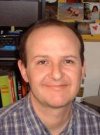 Giulio Prisco is the Director of the futurist consulting consortium FutureTag. He is former physicist and computer scientist, and former manager in the European space and defense administration. Mr. Prisco is based in Madrid, Spain, where he founded the Spanish transhumanist group FASTRA. Mr. Prisco also serves on the Board of Directors of the World Transhumanist Association. Giulio Prisco is the Director of the futurist consulting consortium FutureTag. He is former physicist and computer scientist, and former manager in the European space and defense administration. Mr. Prisco is based in Madrid, Spain, where he founded the Spanish transhumanist group FASTRA. Mr. Prisco also serves on the Board of Directors of the World Transhumanist Association. |
Anders Sandberg, Ph.D.
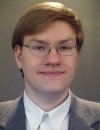 Anders Sandberg is a Swedish neuroscientist, science debater, futurist, transhumanist, and author. He holds a Ph.D. in computational neuroscience from Stockholm University and is currently postdoctoral research assistant for the Oxford group of the EU ENHANCE Project at the Uehiro Centre for Practical Ethics and research associate at the Future of Humanity Institute (Faculty of Philosophy, Oxford University). He has also been scientific producer for the neuroscience exhibition "Se Hjärnan!" ("Behold the Brain!"), organized by Swedish Travelling Exhibitions, the Swedish Research Council and the Knowledge Foundation that is touring Sweden 2005-2006. Anders Sandberg is a Swedish neuroscientist, science debater, futurist, transhumanist, and author. He holds a Ph.D. in computational neuroscience from Stockholm University and is currently postdoctoral research assistant for the Oxford group of the EU ENHANCE Project at the Uehiro Centre for Practical Ethics and research associate at the Future of Humanity Institute (Faculty of Philosophy, Oxford University). He has also been scientific producer for the neuroscience exhibition "Se Hjärnan!" ("Behold the Brain!"), organized by Swedish Travelling Exhibitions, the Swedish Research Council and the Knowledge Foundation that is touring Sweden 2005-2006. |
Harri Valpola, D.Sc.
Philippe Van Nedervelde (E-spaces nv)
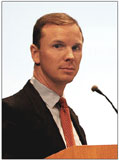 Philippe Van Nedervelde is the award-winning founder, CEO and majority-owner of E-spaces, his VR production house specialized in online multi-user VR world and communities for business, governmental, education and consumer audiences. Also a nanotechnology expert, Philippe has represented the Foresight Nanotech Institute in Europe since 1997. Philippe Van Nedervelde is the award-winning founder, CEO and majority-owner of E-spaces, his VR production house specialized in online multi-user VR world and communities for business, governmental, education and consumer audiences. Also a nanotechnology expert, Philippe has represented the Foresight Nanotech Institute in Europe since 1997. |
Natasha Vita-More
 Natasha Vita-More, BFA, MS, and currently working on a PhD (Planetary Collegium, School of Computing, Communications and Electronics, CAIIA), is president of Extropy Institute, was one of the first articulators of the transhumanist vision and has been on forefront of translating transhumanism into arts and culture. As an international spokesperson for futurist ideas Ms. Vita-More is a media magnet, having been featured in numerous international magazines and televised programs. She is the author of the Transhumanist Arts Statement and founder of Transhumanist Arts & Culture. Her pioneering future body design "Primo [3M+] Posthuman" visually coalesces the technical advances and the philosophical issues of the future human which has become an ideological statement. Natasha Vita-More, BFA, MS, and currently working on a PhD (Planetary Collegium, School of Computing, Communications and Electronics, CAIIA), is president of Extropy Institute, was one of the first articulators of the transhumanist vision and has been on forefront of translating transhumanism into arts and culture. As an international spokesperson for futurist ideas Ms. Vita-More is a media magnet, having been featured in numerous international magazines and televised programs. She is the author of the Transhumanist Arts Statement and founder of Transhumanist Arts & Culture. Her pioneering future body design "Primo [3M+] Posthuman" visually coalesces the technical advances and the philosophical issues of the future human which has become an ideological statement. |
David Wood (Symbian Ltd)
 David Wood has been deeply involved for nearly 20 years in the development and commercial deployment of what can be called "second personal brains" - initially, handheld electronic personal organisers, with the London-based company Psion; and then smartphones, with Symbian, a spin-out of the software team from Psion. David was a founding director of Symbian, and oversaw the architectural development of Symbian OS, an operating system that is already used in more than 60 million advanced programmable mobile phones worldwide. At various times, David has led virtually all the deparments in Symbian, including software development, technical consulting, partnering, and research. As EVP of Research, David is responsible for understanding and guiding Symbian's response to the rapidly evolving trends in technology, business, and society, that involve "mobile digital brains" and enhanced personal connectivity. David has an MA in Mathematics from Cambridge University and an honorary doctorate in science from the University of Westminster. David Wood has been deeply involved for nearly 20 years in the development and commercial deployment of what can be called "second personal brains" - initially, handheld electronic personal organisers, with the London-based company Psion; and then smartphones, with Symbian, a spin-out of the software team from Psion. David was a founding director of Symbian, and oversaw the architectural development of Symbian OS, an operating system that is already used in more than 60 million advanced programmable mobile phones worldwide. At various times, David has led virtually all the deparments in Symbian, including software development, technical consulting, partnering, and research. As EVP of Research, David is responsible for understanding and guiding Symbian's response to the rapidly evolving trends in technology, business, and society, that involve "mobile digital brains" and enhanced personal connectivity. David has an MA in Mathematics from Cambridge University and an honorary doctorate in science from the University of Westminster. |
|
 William Sims Bainbridge, Ph.D., is the author of 12 books, 4 textbook-software packages, and 200 shorter publications in information science, social science of technology, and the sociology of religion. He is the editor of the Berkshire Encyclopedia of Human-Computer Interaction (2004) and author of God from the Machine, a study using artificial intelligence techniques to understand religious belief (2006). With Mihail Roco, he co-edited the pioneering reports Societal Implications of Nanoscience and Nanotechnology (2001) and Converging Technologies for Improving Human Performance (2003), and four subsequent similar works. He has just completed The Secular Abyss, a study of tension between science, religion, and human well being. At the US National Science Foundation since 1992, he represented the social and behavioral sciences on five advanced technology initiatives: High Performance Computing and Communications, Knowledge and Distributed Intelligence, Digital Libraries, Information Technology Research, and Nanotechnology, before joining the staff of the Directorate for Computer and Information Science and Engineering.
William Sims Bainbridge, Ph.D., is the author of 12 books, 4 textbook-software packages, and 200 shorter publications in information science, social science of technology, and the sociology of religion. He is the editor of the Berkshire Encyclopedia of Human-Computer Interaction (2004) and author of God from the Machine, a study using artificial intelligence techniques to understand religious belief (2006). With Mihail Roco, he co-edited the pioneering reports Societal Implications of Nanoscience and Nanotechnology (2001) and Converging Technologies for Improving Human Performance (2003), and four subsequent similar works. He has just completed The Secular Abyss, a study of tension between science, religion, and human well being. At the US National Science Foundation since 1992, he represented the social and behavioral sciences on five advanced technology initiatives: High Performance Computing and Communications, Knowledge and Distributed Intelligence, Digital Libraries, Information Technology Research, and Nanotechnology, before joining the staff of the Directorate for Computer and Information Science and Engineering. Aubrey de Grey, Ph.D., is a biogerontologist at the University of Cambridge, UK. He designs interventions to reverse the cellular and molecular changes that accumulate with age and reduce remaining life expectancy. He has coined the term “strategies for engineered negligible senescence” (SENS) to describe these interventions, which he argues are the only feasible way to extend human lifespan by more than a decade. He has published widely on such technology. He is also the co-founder and chief scientist of the Methuselah Mouse Prize, a contest designed to accelerate research into effective life extension interventions by awarding prizes to researchers who extend the lifespan of mice to unprecedented lengths.
Aubrey de Grey, Ph.D., is a biogerontologist at the University of Cambridge, UK. He designs interventions to reverse the cellular and molecular changes that accumulate with age and reduce remaining life expectancy. He has coined the term “strategies for engineered negligible senescence” (SENS) to describe these interventions, which he argues are the only feasible way to extend human lifespan by more than a decade. He has published widely on such technology. He is also the co-founder and chief scientist of the Methuselah Mouse Prize, a contest designed to accelerate research into effective life extension interventions by awarding prizes to researchers who extend the lifespan of mice to unprecedented lengths. Ari Heljakka (MSc, BA) advocates complete re-evaluation of the traditional Western world views. He wages war against all forms of stagnation in human thought patterns, especially cowardly attitudes towards present and future technology and science. His scientific work in GenMind Ltd (Finland) currently consists of AI research aimed at developing robot cognition software based on Novamente AI engine jointly with Novamente LLC (USA).
Ari Heljakka (MSc, BA) advocates complete re-evaluation of the traditional Western world views. He wages war against all forms of stagnation in human thought patterns, especially cowardly attitudes towards present and future technology and science. His scientific work in GenMind Ltd (Finland) currently consists of AI research aimed at developing robot cognition software based on Novamente AI engine jointly with Novamente LLC (USA). Timo Airaksinen, Ph.D., is a professor of Philosophy at the University of Helsinki, Finland. He has written extensively on ethics, epistemology, and the history of philosophy.
Timo Airaksinen, Ph.D., is a professor of Philosophy at the University of Helsinki, Finland. He has written extensively on ethics, epistemology, and the history of philosophy.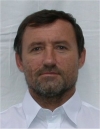 Anatoli Bogdan, Ph.D, is a researcher at Division of Atmospheric Sciences in University of Helsinki.
Anatoli Bogdan, Ph.D, is a researcher at Division of Atmospheric Sciences in University of Helsinki. Nick Bostrom, Ph.D., is a philosopher at Oxford University, and the Director of the Oxford Future of Humanity Institute. He co-founded the World Transhumanist Association in 1998 and is a frequent spokesperson and commentator in the media. He has been a consultant for the Central Intelligence Agency (Washington, DC), and for the European Commission and the European Group on Ethics (Brussels). Dr. Bostrom’s research interests include the philosophy of science, probability theory, and the ethical and strategic implications of anticipated technologies. He has a background in cosmology, computational neuroscience, mathematical logic, philosophy, and artificial intelligence, and is the author of the book Anthropic Bias: Observation Selection Effects in Science and Philosophy (Routledge, New York, 2002).
Nick Bostrom, Ph.D., is a philosopher at Oxford University, and the Director of the Oxford Future of Humanity Institute. He co-founded the World Transhumanist Association in 1998 and is a frequent spokesperson and commentator in the media. He has been a consultant for the Central Intelligence Agency (Washington, DC), and for the European Commission and the European Group on Ethics (Brussels). Dr. Bostrom’s research interests include the philosophy of science, probability theory, and the ethical and strategic implications of anticipated technologies. He has a background in cosmology, computational neuroscience, mathematical logic, philosophy, and artificial intelligence, and is the author of the book Anthropic Bias: Observation Selection Effects in Science and Philosophy (Routledge, New York, 2002). Riccardo Campa, Ph.D., is assistant professor of sociology at the University of Cracow, where he teaches "sociology of science and technology" and "sociology and psychology of terrorism". He is the author of Epistemological Dimensions of Robert Merton’s Sociology and Il filosofo è nudo. He received a Ph.D. in Sociology at the Nicholas Copernicus University of Torun (Poland), and two Masters degrees, in Political Sciences and Philosophy, at the University of Bologna (Italy). Before starting his academic career, Campa served as Lieutenant of the police corp "Guardia di Finanza", investigating especially organized crime. Afterwards, he worked as a journalist for newspaper "La Voce di Mantova" and newsmagazine "Il Mondo". In the academic year 2004-2005 he won a fellowship offered by NATO to research about ethical aspects of scientific and technological development. Presently, he writes regularly for the socialist journal "MondOperaio". He is the founder and the president of the Italian Transhumanist Association. He is also a musician who has recorded more than fifteen albums as a solo artist and with his bands.
Riccardo Campa, Ph.D., is assistant professor of sociology at the University of Cracow, where he teaches "sociology of science and technology" and "sociology and psychology of terrorism". He is the author of Epistemological Dimensions of Robert Merton’s Sociology and Il filosofo è nudo. He received a Ph.D. in Sociology at the Nicholas Copernicus University of Torun (Poland), and two Masters degrees, in Political Sciences and Philosophy, at the University of Bologna (Italy). Before starting his academic career, Campa served as Lieutenant of the police corp "Guardia di Finanza", investigating especially organized crime. Afterwards, he worked as a journalist for newspaper "La Voce di Mantova" and newsmagazine "Il Mondo". In the academic year 2004-2005 he won a fellowship offered by NATO to research about ethical aspects of scientific and technological development. Presently, he writes regularly for the socialist journal "MondOperaio". He is the founder and the president of the Italian Transhumanist Association. He is also a musician who has recorded more than fifteen albums as a solo artist and with his bands. Jose Cordeiro is an independent consultant, writer, researcher, professor and "traveler". He teaches as a Guest Professor at the Institute for Higher Studies in Administration (IESA) and at the Central University of Venezuela (UCV), where he created the first formal courses of Futures Studies ("prospectiva") and also of Austrian Economics in Venezuela. He is founder and president of the World Future Society (Venezuela Chapter), cofounder of the Venezuelan Transhumanist Association, chair of the Venezuelan Node of the Millennium Project of the American Council of the United Nations University (UNU), director of the Extropy Institute, advisor to the Center for Responsible Nanotechnology, member of the Academic Committee of the Center for the Dissemination of Economic Knowledge (CEDICE), former director of the Club of Rome (Venezuela Chapter, where he has being active promoting classical liberal ideas) and of the Venezuelan Association of Exporters (AVEX), and consultant to various companies and organizations, both Venezuelan and international. He has been included in the Marquis Edition of Who's Who in the World.
Jose Cordeiro is an independent consultant, writer, researcher, professor and "traveler". He teaches as a Guest Professor at the Institute for Higher Studies in Administration (IESA) and at the Central University of Venezuela (UCV), where he created the first formal courses of Futures Studies ("prospectiva") and also of Austrian Economics in Venezuela. He is founder and president of the World Future Society (Venezuela Chapter), cofounder of the Venezuelan Transhumanist Association, chair of the Venezuelan Node of the Millennium Project of the American Council of the United Nations University (UNU), director of the Extropy Institute, advisor to the Center for Responsible Nanotechnology, member of the Academic Committee of the Center for the Dissemination of Economic Knowledge (CEDICE), former director of the Club of Rome (Venezuela Chapter, where he has being active promoting classical liberal ideas) and of the Venezuelan Association of Exporters (AVEX), and consultant to various companies and organizations, both Venezuelan and international. He has been included in the Marquis Edition of Who's Who in the World. Ben Goertzel, Ph.D., has published five scholarly books dealing with topics in the AI, systems theory and cognitive sciences, including Chaotic Logic (Plenum Press, 1994), and Creating Internet Intelligence (Plenum Press, 2001), a biography of Linus Pauling, and one previous edited volume (in the area of dynamical psychology), as well as numerous research papers. Dr. Ben Goertzel has been involved in AI research and application development since the late 1980's. He holds a PhD in mathematics from Temple University, and over the period 1989-1997 he held several university faculty positions in mathematics, computer science, and psychology, in the US, New Zealand and Australia. Currently, as founder and CEO of the software firms Biomind LLC and Novamente LLC, he is leading a team of AI researchers in the development and commercialization of Artificial General Intelligence technology.
Ben Goertzel, Ph.D., has published five scholarly books dealing with topics in the AI, systems theory and cognitive sciences, including Chaotic Logic (Plenum Press, 1994), and Creating Internet Intelligence (Plenum Press, 2001), a biography of Linus Pauling, and one previous edited volume (in the area of dynamical psychology), as well as numerous research papers. Dr. Ben Goertzel has been involved in AI research and application development since the late 1980's. He holds a PhD in mathematics from Temple University, and over the period 1989-1997 he held several university faculty positions in mathematics, computer science, and psychology, in the US, New Zealand and Australia. Currently, as founder and CEO of the software firms Biomind LLC and Novamente LLC, he is leading a team of AI researchers in the development and commercialization of Artificial General Intelligence technology. James Hughes, Ph.D., the IEET Executive Director, is a bioethicist and sociologist at Trinity College in Hartford Connecticut where he teaches Health Policy. He holds a doctorate in sociology from the University of Chicago, where he also taught bioethics. Dr. Hughes is author of Citizen Cyborg: Why Democratic Societies Must Respond to the Redesigned Human of the Future (Westview Press, 2004), and produces a syndicated weekly radio program, Changesurfer Radio. He is a Fellow of the World Academy of Arts and Sciences, and a member of the American Society of Bioethics and Humanities and the Working Group on Ethics and Technology at Yale University. Dr. Hughes speaks on medical ethics, health care policy and future studies worldwide, and appears often radio and television.
James Hughes, Ph.D., the IEET Executive Director, is a bioethicist and sociologist at Trinity College in Hartford Connecticut where he teaches Health Policy. He holds a doctorate in sociology from the University of Chicago, where he also taught bioethics. Dr. Hughes is author of Citizen Cyborg: Why Democratic Societies Must Respond to the Redesigned Human of the Future (Westview Press, 2004), and produces a syndicated weekly radio program, Changesurfer Radio. He is a Fellow of the World Academy of Arts and Sciences, and a member of the American Society of Bioethics and Humanities and the Working Group on Ethics and Technology at Yale University. Dr. Hughes speaks on medical ethics, health care policy and future studies worldwide, and appears often radio and television.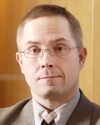 Hannu Kari, D.Sc., is a professor on mobility at Laboratory of Theoretical Computer Science in Helsinki University of Technology.
Hannu Kari, D.Sc., is a professor on mobility at Laboratory of Theoretical Computer Science in Helsinki University of Technology. Bruce Lloyd, Ph.D., spent over 20 years in industry and finance before joining London South Bank University. He has a degree in Chemical Engineering and a MSc (Economics) / MBA from the London Business School. He obtained his PhD (by published work) in 1996 for his work on 'The Future of Offices and office Work: Implications for Organisational Strategy'. Since the late 1960's he has published about 200 articles on a wide range of strategy related issues, including, more recently, exploring the relationship between Leadership, Wisdom and Knowledge Management. He has also undertaken over 50 interviews with leading thinkers on leadership published in 'Leadership and Organizational Development Journal', as well having done other interviews for the 'Tomorrow Project Bulletin'.
Bruce Lloyd, Ph.D., spent over 20 years in industry and finance before joining London South Bank University. He has a degree in Chemical Engineering and a MSc (Economics) / MBA from the London Business School. He obtained his PhD (by published work) in 1996 for his work on 'The Future of Offices and office Work: Implications for Organisational Strategy'. Since the late 1960's he has published about 200 articles on a wide range of strategy related issues, including, more recently, exploring the relationship between Leadership, Wisdom and Knowledge Management. He has also undertaken over 50 interviews with leading thinkers on leadership published in 'Leadership and Organizational Development Journal', as well having done other interviews for the 'Tomorrow Project Bulletin'. Sky Marsen has a BA in Linguistics and Cognitive Science from the University of London, an MA in Information and Communication Studies from the University of Paris-Sorbonne, and a PhD in Semiotics from Monash University. She has taught communication internationally, notably at Caltech in the US, and at Victoria University in New Zealand. Also, she has authored books and articles, including the forthcoming Narrative dimensions of philosophy: Semiotic explorations in the work of Merleau-Ponty, Kierkegaard and Austin, Palgrave 2006, and 'To be an actor or to be an observer? A semiotic typology of narrator roles in written discourse', Semiotica, (149-1/4), 2004.
Sky Marsen has a BA in Linguistics and Cognitive Science from the University of London, an MA in Information and Communication Studies from the University of Paris-Sorbonne, and a PhD in Semiotics from Monash University. She has taught communication internationally, notably at Caltech in the US, and at Victoria University in New Zealand. Also, she has authored books and articles, including the forthcoming Narrative dimensions of philosophy: Semiotic explorations in the work of Merleau-Ponty, Kierkegaard and Austin, Palgrave 2006, and 'To be an actor or to be an observer? A semiotic typology of narrator roles in written discourse', Semiotica, (149-1/4), 2004.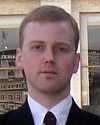 Danila Medvedev, Ph.D., is a 26 years old futurologist, co-founder of Russian Transhumanist Movement and co-founder of KrioRus, a Russian cryonics company. He has translated "Prospects of Immortality" by R. Ettinger and the Transhumanist FAQ into Russian.
Danila Medvedev, Ph.D., is a 26 years old futurologist, co-founder of Russian Transhumanist Movement and co-founder of KrioRus, a Russian cryonics company. He has translated "Prospects of Immortality" by R. Ettinger and the Transhumanist FAQ into Russian. Giulio Prisco is the Director of the futurist consulting consortium FutureTag. He is former physicist and computer scientist, and former manager in the European space and defense administration. Mr. Prisco is based in Madrid, Spain, where he founded the Spanish transhumanist group FASTRA. Mr. Prisco also serves on the Board of Directors of the World Transhumanist Association.
Giulio Prisco is the Director of the futurist consulting consortium FutureTag. He is former physicist and computer scientist, and former manager in the European space and defense administration. Mr. Prisco is based in Madrid, Spain, where he founded the Spanish transhumanist group FASTRA. Mr. Prisco also serves on the Board of Directors of the World Transhumanist Association. Anders Sandberg is a Swedish neuroscientist, science debater, futurist, transhumanist, and author. He holds a Ph.D. in computational neuroscience from Stockholm University and is currently postdoctoral research assistant for the Oxford group of the EU ENHANCE Project at the Uehiro Centre for Practical Ethics and research associate at the Future of Humanity Institute (Faculty of Philosophy, Oxford University). He has also been scientific producer for the neuroscience exhibition "Se Hjärnan!" ("Behold the Brain!"), organized by Swedish Travelling Exhibitions, the Swedish Research Council and the Knowledge Foundation that is touring Sweden 2005-2006.
Anders Sandberg is a Swedish neuroscientist, science debater, futurist, transhumanist, and author. He holds a Ph.D. in computational neuroscience from Stockholm University and is currently postdoctoral research assistant for the Oxford group of the EU ENHANCE Project at the Uehiro Centre for Practical Ethics and research associate at the Future of Humanity Institute (Faculty of Philosophy, Oxford University). He has also been scientific producer for the neuroscience exhibition "Se Hjärnan!" ("Behold the Brain!"), organized by Swedish Travelling Exhibitions, the Swedish Research Council and the Knowledge Foundation that is touring Sweden 2005-2006.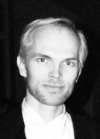 Harri Valpola, D.Sc., is a Academy of Finland research fellow at Laboratory of Computational Engineering in Helsinki University of Technology where he has been running the Computational neuroscience group. Before coming to LCE, Dr. Valpola worked 14 months at AI Lab at University of Zurich and more than ten years at the Neural Networks Research Centre at HUT.
Harri Valpola, D.Sc., is a Academy of Finland research fellow at Laboratory of Computational Engineering in Helsinki University of Technology where he has been running the Computational neuroscience group. Before coming to LCE, Dr. Valpola worked 14 months at AI Lab at University of Zurich and more than ten years at the Neural Networks Research Centre at HUT. Philippe Van Nedervelde is the award-winning founder, CEO and majority-owner of E-spaces, his VR production house specialized in online multi-user VR world and communities for business, governmental, education and consumer audiences. Also a nanotechnology expert, Philippe has represented the Foresight Nanotech Institute in Europe since 1997.
Philippe Van Nedervelde is the award-winning founder, CEO and majority-owner of E-spaces, his VR production house specialized in online multi-user VR world and communities for business, governmental, education and consumer audiences. Also a nanotechnology expert, Philippe has represented the Foresight Nanotech Institute in Europe since 1997. Natasha Vita-More, BFA, MS, and currently working on a PhD (Planetary Collegium, School of Computing, Communications and Electronics, CAIIA), is president of Extropy Institute, was one of the first articulators of the transhumanist vision and has been on forefront of translating transhumanism into arts and culture. As an international spokesperson for futurist ideas Ms. Vita-More is a media magnet, having been featured in numerous international magazines and televised programs. She is the author of the Transhumanist Arts Statement and founder of Transhumanist Arts & Culture. Her pioneering future body design "Primo [3M+] Posthuman" visually coalesces the technical advances and the philosophical issues of the future human which has become an ideological statement.
Natasha Vita-More, BFA, MS, and currently working on a PhD (Planetary Collegium, School of Computing, Communications and Electronics, CAIIA), is president of Extropy Institute, was one of the first articulators of the transhumanist vision and has been on forefront of translating transhumanism into arts and culture. As an international spokesperson for futurist ideas Ms. Vita-More is a media magnet, having been featured in numerous international magazines and televised programs. She is the author of the Transhumanist Arts Statement and founder of Transhumanist Arts & Culture. Her pioneering future body design "Primo [3M+] Posthuman" visually coalesces the technical advances and the philosophical issues of the future human which has become an ideological statement. David Wood has been deeply involved for nearly 20 years in the development and commercial deployment of what can be called "second personal brains" - initially, handheld electronic personal organisers, with the London-based company Psion; and then smartphones, with Symbian, a spin-out of the software team from Psion. David was a founding director of Symbian, and oversaw the architectural development of Symbian OS, an operating system that is already used in more than 60 million advanced programmable mobile phones worldwide. At various times, David has led virtually all the deparments in Symbian, including software development, technical consulting, partnering, and research. As EVP of Research, David is responsible for understanding and guiding Symbian's response to the rapidly evolving trends in technology, business, and society, that involve "mobile digital brains" and enhanced personal connectivity. David has an MA in Mathematics from Cambridge University and an honorary doctorate in science from the University of Westminster.
David Wood has been deeply involved for nearly 20 years in the development and commercial deployment of what can be called "second personal brains" - initially, handheld electronic personal organisers, with the London-based company Psion; and then smartphones, with Symbian, a spin-out of the software team from Psion. David was a founding director of Symbian, and oversaw the architectural development of Symbian OS, an operating system that is already used in more than 60 million advanced programmable mobile phones worldwide. At various times, David has led virtually all the deparments in Symbian, including software development, technical consulting, partnering, and research. As EVP of Research, David is responsible for understanding and guiding Symbian's response to the rapidly evolving trends in technology, business, and society, that involve "mobile digital brains" and enhanced personal connectivity. David has an MA in Mathematics from Cambridge University and an honorary doctorate in science from the University of Westminster.
